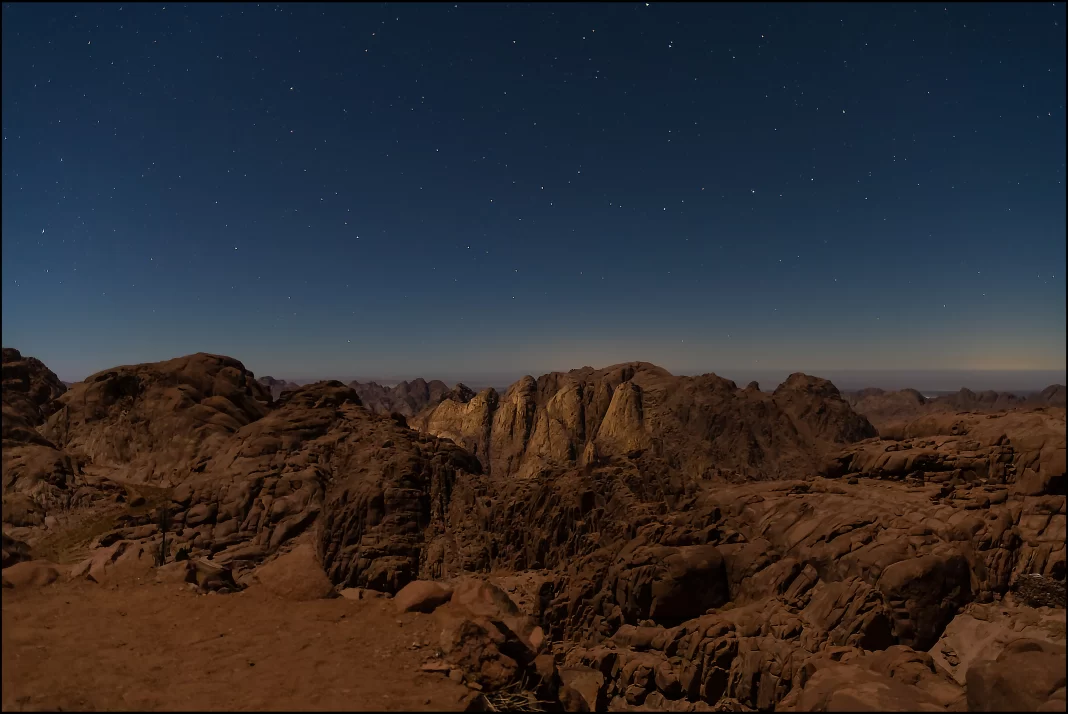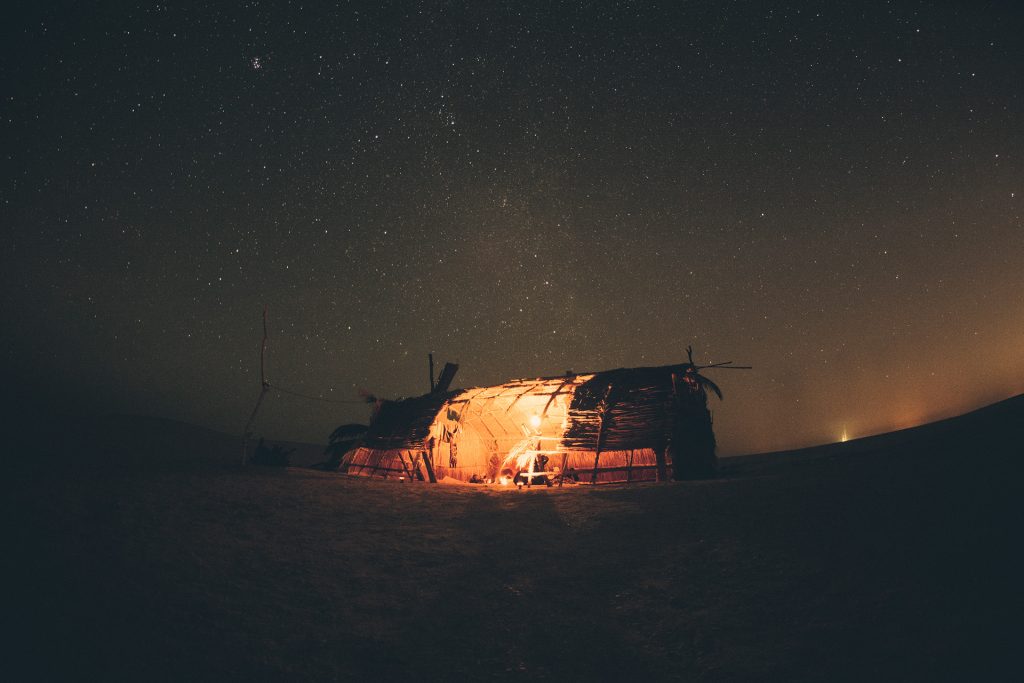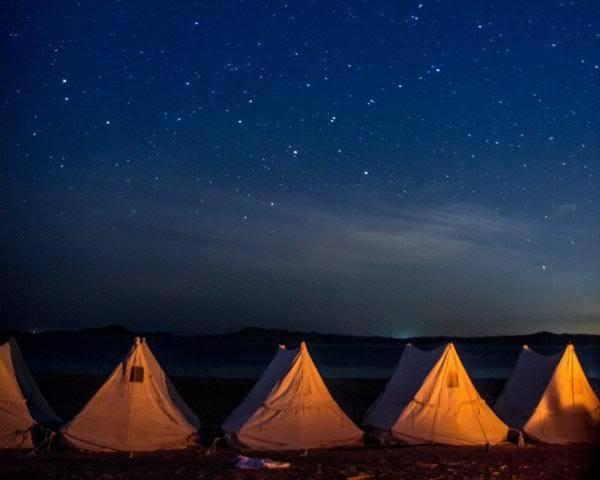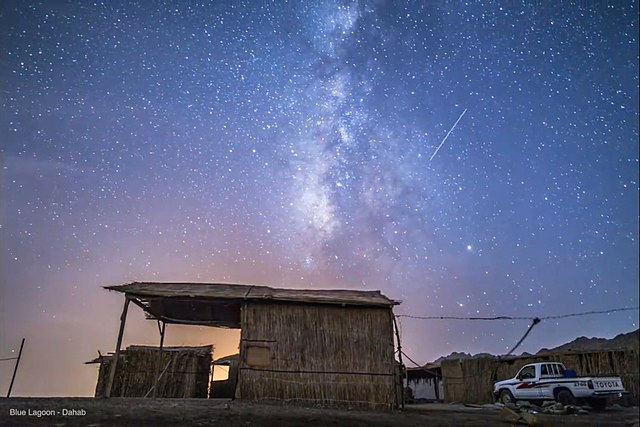For the ancient Egyptians, the stars were more than a spectacle; they were essential to life. Astronomy played a key role in agriculture, religion, and architecture. A significant example is the heliacal rising of Sirius—when the star Sirius first becomes visible in the dawn sky after a period of being hidden.
Known as Sothis to the ancient Egyptians, this event marked the start of the Egyptian New Year and foretold the annual flooding of the Nile, which was crucial for farming. Many temples and pyramids were aligned with celestial bodies, symbolizing the deep connection between their structures and the cosmos. Today, Egypt’s deserts, with their unpolluted skies, offer a rare chance to witness the same starry vistas that shaped one of history’s greatest civilizations.
The Sinai Mountains
Rising from the Sinai Peninsula, the rugged Sinai Mountains are steeped in history and spirituality. Mount Sinai, believed to be the biblical mountain where Moses received the Ten Commandments, draws pilgrims and adventurers alike.
But as night falls, the area reveals another marvel: its pristine desert skies. High elevations and minimal light pollution make it an ideal spot for stargazing, often accompanied by Bedouin hospitality, camel rides, and a deep sense of peace.
Fayoum
Just a short drive from Cairo, Fayoum offers an accessible yet otherworldly stargazing escape. Its vast deserts and tranquil lakes, like Wadi Rayan and Qarun Lake, serve as perfect backdrops for observing celestial wonders. Whether camping under the stars or simply enjoying the stillness of the desert, Fayoum provides an unforgettable experience close to the capital.
Ras Mohammed National Park
At the southern tip of the Sinai Peninsula, Ras Mohammed National Park combines coastal beauty with celestial brilliance. The park’s remote location ensures a sky untouched by urban light, where stars shine vividly.
Visitors often pair stargazing with exploration of the park’s desert and marine ecosystems, creating a blend of earthly and cosmic awe.
The Blue Lagoon, Dahab
Known for its serene waters and isolation, the Blue Lagoon in Dahab offers unparalleled stargazing. Here, the night sky unfolds in stunning clarity, revealing constellations and the Milky Way. Whether lying on the sand or staying overnight in a simple camp, visitors are immersed in a celestial spectacle that’s as humbling as it is magical.
To make the most of stargazing in Egypt, you can rely on travel companies like Paradise Egypt and Stamps to organize your trip.
When planning your adventure, keep a few tips in mind for a seamless experience. For events like the Perseid Meteor Shower, opt for cooler coastal locations such as Marsa Matrouh, Hankorab Beach, or the Blue Lagoon, where summer temperatures are more bearable.
Bring a comfortable setup, including a reclining chair, blankets, and snacks, and look northeast toward the constellation Perseus for the best meteor views, particularly after midnight until dawn.
For general stargazing, schedule your trip during a new moon for the darkest skies, and pack binoculars or a telescope for an enhanced view.
Don’t forget to dress warmly, as desert and mountain nights can be chilly, and always check the weather forecast to ensure clear skies. With proper planning, these tips will help you enjoy Egypt’s stunning celestial displays to the fullest.





